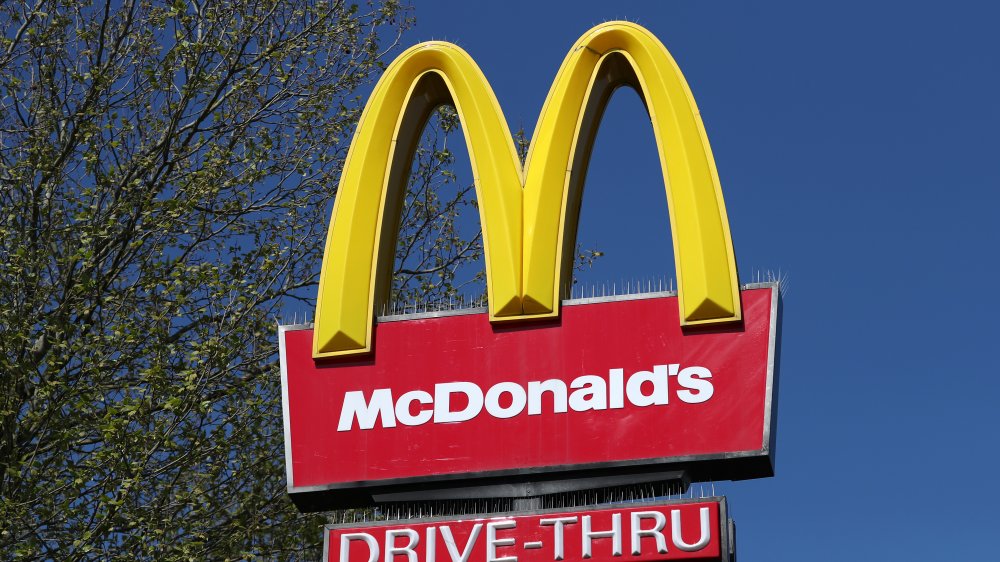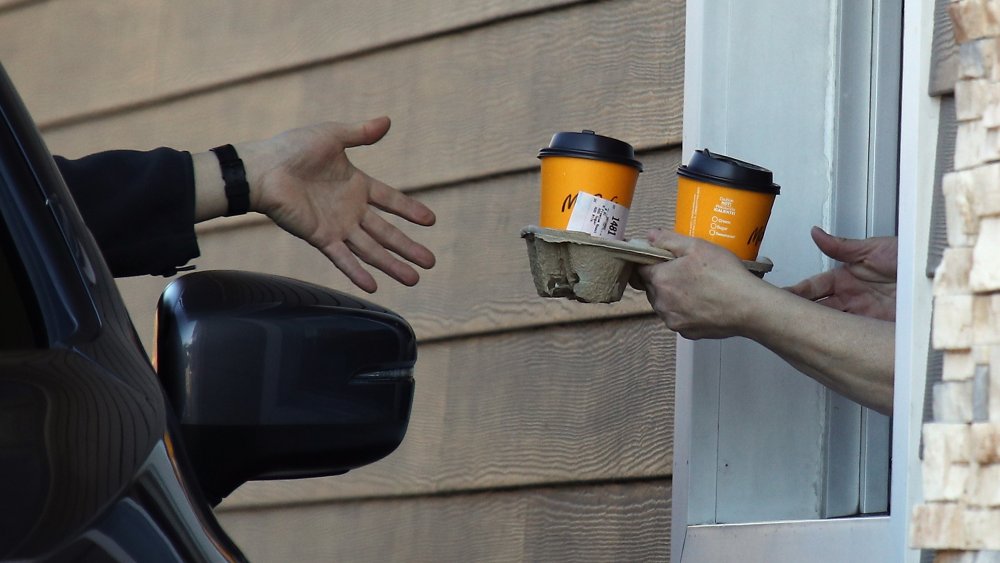How McDonald's Is Really Treating Its Employees During The Pandemic
Even before the COVID-19 pandemic struck, America's fast food industry stood out over the shabby way it treated its workers. Because they are considered essential, fast food workers have to go to work — and while that should be giving them some peace of mind (particularly where finances are concerned), the opposite appears to be true. Front line staff say they feel they are being forced to risk their health, and their lives, for pay that barely rises above minimum wage (via Business Insider).
Bettie Douglas, who has worked at McDonald's for 14 years, tells Fast Company that the social distancing rule of staying 6 feet away from someone is difficult to keep when you are working together. Instead of getting paid extra for working in potentially dangerous circumstances, McDonald's workers' paychecks are smaller because their hours are being cut. Douglas and workers like her also still don't have health benefits, so if they get sick, they aren't covered. She also points out that: "... we're operating the drive-through, so if one of us has the virus, we could give it to customers."
McDonalds staff may not all have equal access to paid sick leave
Sick leave is a particular sticking point where fast food restaurants like McDonald's are concerned, because they pay an hourly wage — and until the pandemic struck, the company didn't cover sick leave. But COVID-19 changed that, and now McDonald's now offers sick leave to staff working in corporate-owned stores, which makes up about 5 percent of its restaurants.
And while the Families First Coronavirus Response Act should have also allowed workers outside of the McDonald's corporate network to get paid sick leave (especially if they suffer from coronavirus symptoms), the sick leave portion of the act only covers firms with fewer than 500 employees. Most franchisees actually own many restaurants which, together, have more than 500 employees, so the new law may not apply to them.
McDonalds has taken steps to protect its staff and customers... but is it enough?
Still, McDonald's appears to be trying. They have closed dine-in areas and playgrounds, and a contactless service system has been rolled out to protect both customers and staff. The company's U.S. President Joe Erlinger tells Business Insider, "That's why we have taken significant precautions to protect our customers and employees from COVID-19: closing many of our dine-in sections, closing all play areas, increasing cleanings, particularly in high-traffic areas, and making hand sanitizer available in our restaurants."
What hasn't happened (so far?) is the introduction of hazard pay; Starbucks stands out as it noted it would pay all their workers for 30 days, whether or not they went to work — and those who did could expect a $3 raise.
We hope these measures will be enough to keep these essential workers safe. As one McDonald's worker tells Business Insider: "It's scary right now and we have try not to think about it because we need our jobs. I'm prepared to leave my job though if things get too serious and I feel like the company isn't taking appropriate action to keep us safe."


